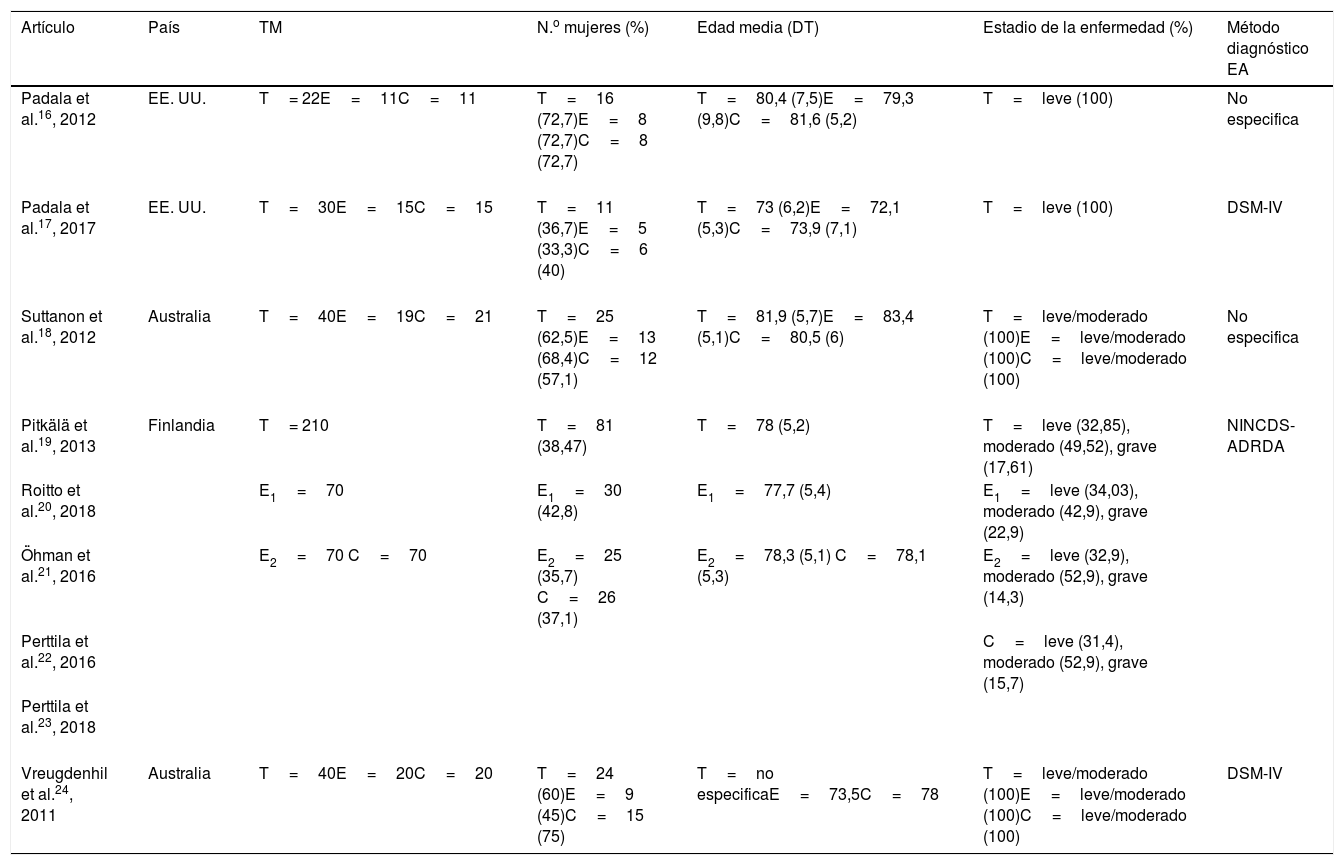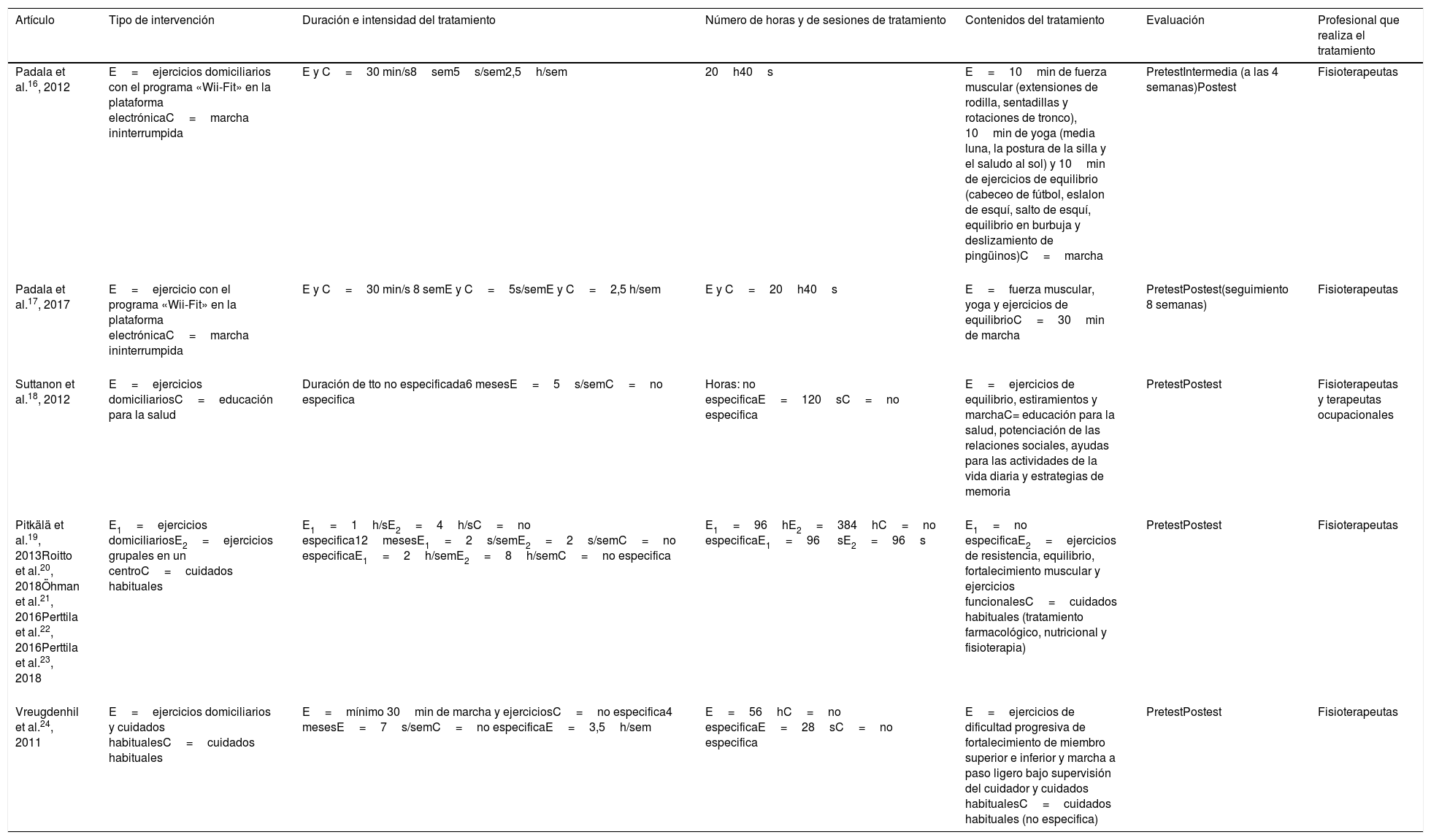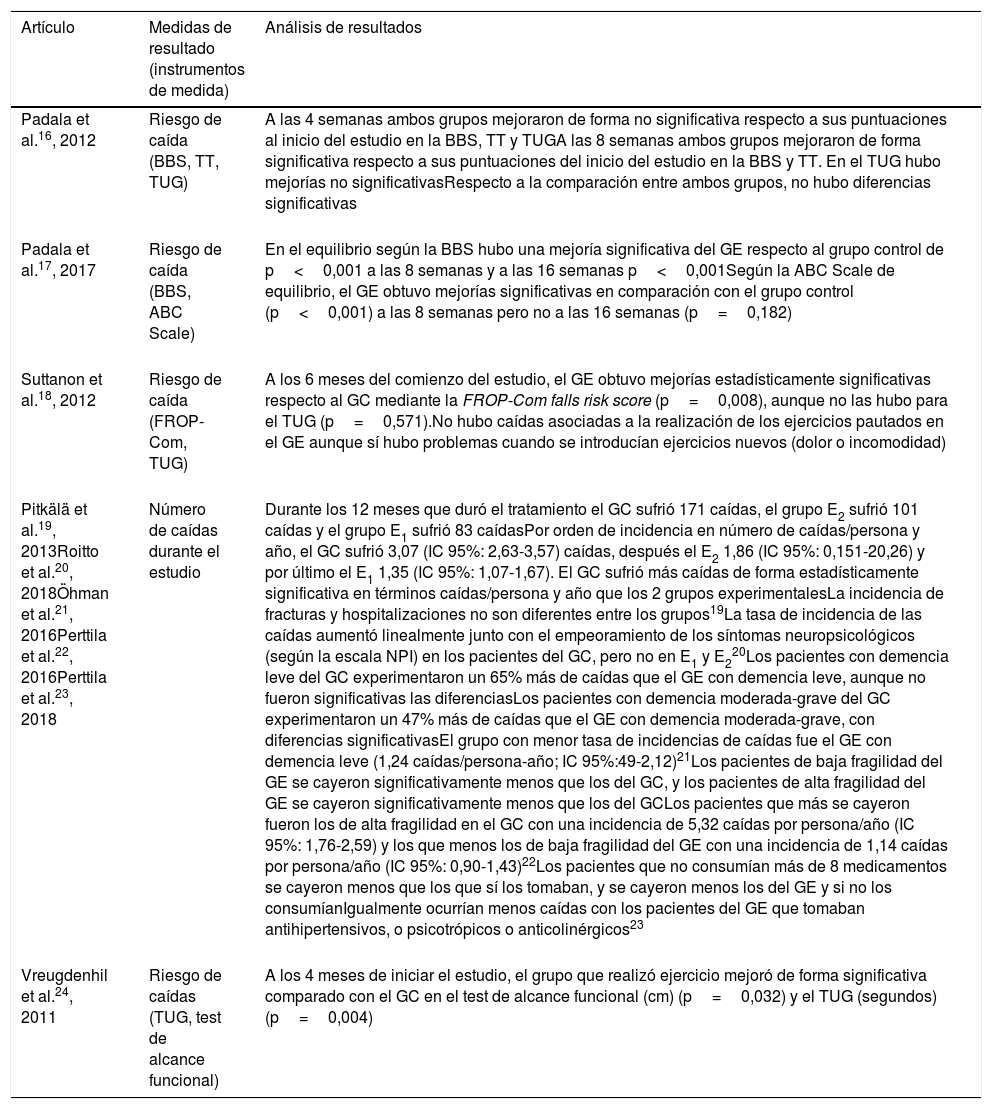Conocer los efectos del ejercicio físico en la prevención de caídas en personas con enfermedad de Alzheimer, y el tipo de ejercicio con mejor eficacia clínica.
Estrategia de búsquedaSiguiendo la estrategia PICOS y las recomendaciones PRISMA, se llevó a cabo una revisión sistemática con búsqueda manual y electrónica en las bases de datos Pubmed, Scielo, PEDro, Biblioteca Cochrane, Web of Science, Medline, IBECS y LILACS.
Selección de estudiosCon criterios preestablecidos, se incluyeron estudios con al menos un grupo de tratamiento con ejercicio, publicados entre 2010 y 2018. De 278 registros iniciales, utilizando las herramientas de cribado de las diferentes bases de datos (cronología, tipo de estudio, etc.) se descartaron 217 artículos. Se realizó una evaluación mediante una lectura crítica de los 61 artículos que habían superado los filtros de búsqueda para identificar aquellos estudios que fueron susceptibles de incluirse en esta revisión sistemática. Finalmente, se incluyeron 9 artículos que dieron lugar a 5 estudios.
Síntesis de resultadosLa puntuación media en la escala PEDro de los 5 estudios es de 6,2. Todos los estudios han obtenido diferencias significativas a favor de los grupos que realizaron tratamiento mediante ejercicio físico. Los ejercicios individuales domiciliarios presentan mejores efectos que los ejercicios ambulatorios grupales. Los resultados favorables se obtienen a las 8 semanas de comenzar el tratamiento.
ConclusionesUn programa de ejercicio físico que incluya entrenamiento de la fuerza, entrenamiento del equilibrio, ejercicios funcionales y marcha puede prevenir las caídas en pacientes con enfermedad de Alzheimer de forma factible y segura.
To know the effects of physical exercise in the prevention of falls in people with Alzheimer's disease and the type of exercise with better clinical efficacy.
Search strategyFollowing the PICOS strategy and PRISMA recommendations, a systematic review was carried out with manual and electronic search in the Pubmed, Scielo, PEDro, Cochrane Library, Web of Science, Medline, IBECS and LILACS databases.
Study selectionWith pre-established criteria, studies with at least one treatment group with exercise, published between 2010 and 2018 are included. Of 278 initial records, using the screening tools of the different databases (chronology, type of study, etc.) 217 items were discarded. An evaluation was carried out through a critical reading of the 61 articles that had passed the search filters to identify the studies that were likely to be included in this systematic review. Finally, 9 articles that resulted in 5 studies were included.
Synthesis of resultsThe average score on the PEDro scale of the 5 studies is 6.2. All studies included obtained significant differences in the groups treated by physical exercise in their post-test measurements. Individual home exercises have better effects than group outpatient exercises. Favourable results will be obtained at 8 weeks after starting treatment.
ConclusionsA physical exercise programme that includes strength training, balance training, functional exercises and walking can prevent the risk of falls in patients with Alzheimer's disease in a feasible and safe way.
Article
Si ya tiene sus datos de acceso, clique aquí.
Si olvidó su clave de acceso puede recuperarla clicando aquí y seleccionando la opción "He olvidado mi contraseña".










